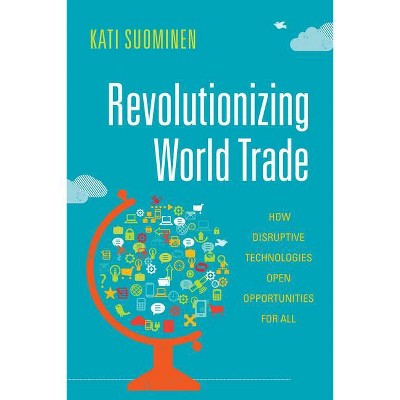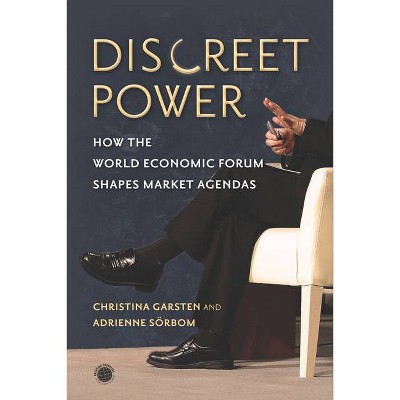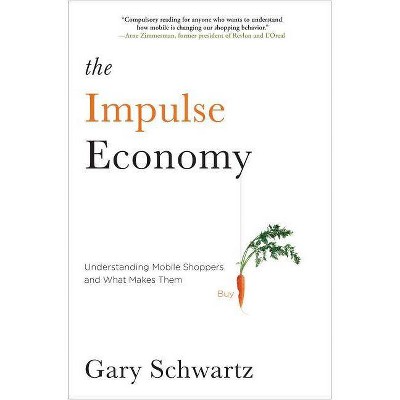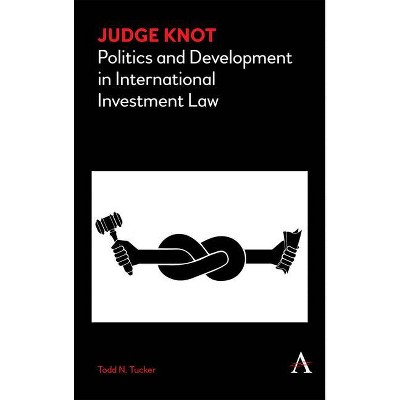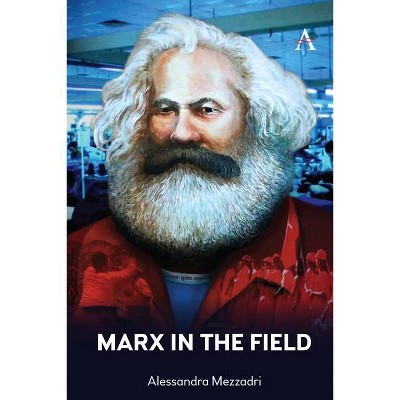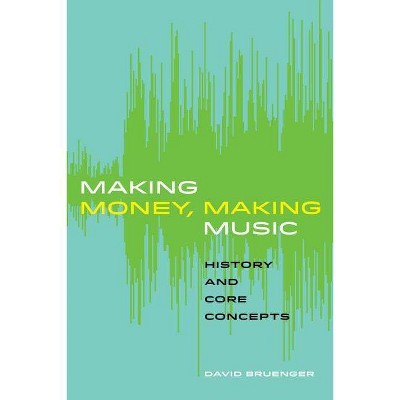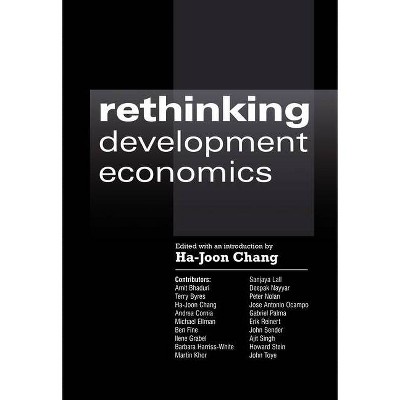Making Money - (Emerging Frontiers in the Global Economy) by Gary G Hamilton & Kao Cheng-Shu (Paperback)
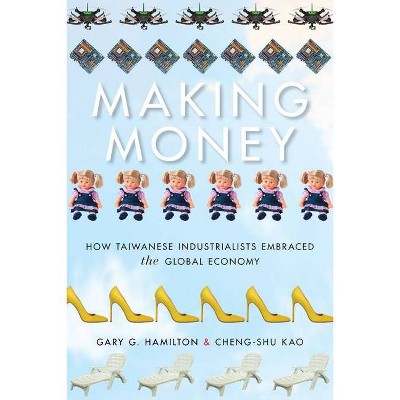
Similar Products
Products of same category from the store
AllProduct info
<p/><br></br><p><b> About the Book </b></p></br></br>Thirty years of research. Over 800 interviews. One untold story. Today, Taiwan is part of the increasingly borderless East Asian economy. But, in the 1950s, it was just beginning to industrialize. <i>Making Money</i> is the tale of the manufacturing demand generated in the West and the Taiwanese businesspeople who stepped up to fill it.<p/><br></br><p><b> Book Synopsis </b></p></br></br><p>Beginning in the 1950s, Taiwan rapidly industrialized, becoming a tributary to an increasingly borderless East Asian economy. And though President Trump has called for the end of American carnage--the loss of U.S. manufacturing jobs--domestic retailers and merchandisers still willingly ship production overseas, primarily to Taiwan. In this book, Gary G. Hamilton and Cheng-shu Kao show how Taiwanese businesspeople have played a tremendous, unsung role in their nation's continuing ascent. </p> <p>From prominent names like Pou Chen and Hon Hai to the owners of small and midsize firms, Taiwan's contract manufacturers have become the world's most sophisticated suppliers of consumer products the world over. Drawing on over 30 years of research and more than 800 interviews, Hamilton and Kao tell these industrialists' stories.</p> <p>The picture that emerges is one of agile neo-capitalists, caught in the flux of a rapidly changing landscape, who tirelessly endeavor to profit on it. <i>Making Money</i> reveals its subjects to be at once producers of economic globalization and its byproducts. While the future of Taiwanese business is uncertain, the durability of demand-led capitalism is not.</p><p/><br></br><p><b> Review Quotes </b></p></br></br><br>[Hamilton and Kao] have written a highly accessible and readable narrative that covers a half-century of economic history central to understanding Taiwan, businesses and entrepreneurs, and global capitalism. The breadth and depth of their study, covering almost all sectors of Taiwan's consumer exports over a course of 30 years, is nearly unprecedented. In sum, this study constitutes an incredibly in-depth, significant, and consequential contribution to scholarship on the Taiwanese economy, and should be necessary reading for readers seeking to understand modern Taiwan.--James Lin "<i>International Journal of Taiwan Studies</i>"<br><br><i>Making Money</i> strikes a rare balance between big ideas and rich case studies, brimming with detail. Hamilton and Kao skillfully argue for a new understanding of the East Asian miracle against the backdrop of the move toward a network-based, demand-responsive global economy. Taiwan sits at the epicenter of this shift. As this book shows, its contract manufacturing prowess provided the micro foundations for China's rise--and Taiwanese production networks are among the factors that will shape the Asian future.--Gary Gereffi "Duke University"<br><br><i>Making Money: How Taiwanese Industrialists Embraced the Global Economy</i> is the one truly crucial must-read book for anyone who wants to understand globalization, contemporary capitalism, or how the East Asian economy works today....Hamilton and Kao have put a lifetime of experience into this book, and it shows.--Salvatore Babones "<i>Asian Review of Books</i>"<br><br>For all those watching China's growth, this book deserves careful reading. We've seen it before--in Japan, South Korea, and in Taiwan, the country that Hamilton and Kao analyze. How is it that such a small country has played an outsized role in globalization over the past half-century? What role does Taiwan play in China's growth? The authors provide answers that will interest economists, political scientists, and sociologists alike.--Robert C. Feenstra, University of California "Davis"<br><br>Hamilton and Kao are the only scholars who could tell such a comprehensive and in-depth story about Taiwan's export-oriented manufacturing sector from its 1960s origins to the present. They situate this seemingly small story in the context of Chinese business and culture, East Asian development, and the global political economy--illustrating why it is a big deal. A masterful contribution.--Ho-Fung Hung "Johns Hopkins University, author of <i>The China Boom</i>"<br><br>One crucial element of Taiwan's economic success, which began in the 1960s--and equally of its economic slowdown, which started in the 1990s--was the agility of its small and medium-sized contract manufacturers, firms that produce consumer products for U.S. brands such as Apple and Timberland but have no brand names of their own. By studying the Taiwanese entrepreneurs who built these firms, Hamilton and Kao shed light on the relationship between globalization and the Asian economic miracle.--Andrew J. Nathan "<i>Foreign Affairs</i>"<br><br>This book is essential reading for anyone interested in the tremendous changes in post-World War II capitalism, the way that American consumers and Asian producers have become inextricably linked. The authors make a compelling case that this transformation leads back to rationalization--on a global scale--in the name of the firm and its profits.--Yun-han Chu, Academia Sinica and President "Chiang Ching-kuo Foundation"<br><br>This book shows a lifetime of engagement with the fascinating story of Taiwan's remarkable growth. Hamilton and Kao explore the symbiotic relationship between changes in U.S. retail and manufacturing developments in Asia. But the real story is in their vivid interviews with entrepreneurs, the real makers of the Taiwanese miracle.--Stephan Haggard "University of California, San Diego, author of <i>Pathways from the Periphery</i>"<br><br>With Taiwan's role in the global economy mainly confined to contract manufacturing and component production--rather than selling brand-name products--the island's importance has gone nearly undetected. Even more invisible has been the role of Taiwan-based companies in China's manufacturing miracle. This in-depth and authoritative study elevates Taiwan to its rightful position and, in doing so, reveals much about how the global economy actually works. Required reading!--Timothy J. Sturgeon "Massachusetts Institute of Technology"<br><p/><br></br><p><b> About the Author </b></p></br></br><b>Gary G. Hamilton</b> is Professor Emeritus in the Jackson School of International Studies at the University of Washington. <b>Cheng-shu Kao</b> is Chairman of the Board of Trustees at Feng Chia University and Honorary Professor in the Department of Sociology at Tunghai University.
Price History
Price Archive shows prices from various stores, lets you see history and find the cheapest. There is no actual sale on the website. For all support, inquiry and suggestion messagescommunication@pricearchive.us
